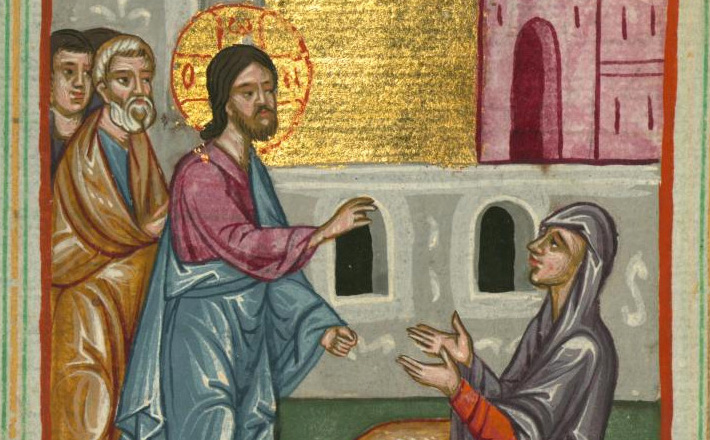Commentary on Genesis 45:1-15
“And he wept so loudly” (Genesis 45:2).
Joseph had done plenty of crying in preceding chapters (Genesis 42:24; 43:30), but this is not a normal cry. It is a weeping wail of epic scope. Joseph had risen from foreigner to a position of leadership over all of the Egyptian empire. Yet for a moment, he could not control himself. He sent away everyone so nobody would see. And yet, the weeping was so loud that it could be heard from those he sent away.
What was the emotion behind the weeping? Was it sadness? Was it joy? Was it just catharsis? Was it just plain mysterious?
Perhaps our own last crying bout can help us think through Genesis 45:1. I’m not referring to a few tears sliding down the cheek, but rather an ugly cry of biblical proportions. Perhaps that can help position you to interpret this text. Wailing is something we usually do not plan like a haircut or an oil change, but something that just comes out. Like Joseph, we cannot control it.
The loss of control for Joseph is a bit surprising in the context of how the book of Genesis has documented the life of Joseph since Genesis 37. Joseph is a brash youngest child and his lack of filter had severe consequences in his life. But through it all, he consistently displays immense control in scenes with enormous pressure, whether in prison, or under sexual seduction, or in the presence of Pharaoh. So the beginning of Genesis 45 provides a surprising shift, as “Joseph could no longer control himself.” He had reunited with his brothers, yet kept his identity secret. The reasons for the secrecy are uncertain. But when Joseph finally loses control, it immediately leads to a display of God’s greater control.
For most of the Joseph narrative, God is surprisingly absent. This is unique among the patriarchal accounts of Genesis 12-50. Abraham directly encounters God on multiple occasions, and God speaks promises. God also appears to Isaac and gives direct commands. God interacts with Jacob and even engages in a direct struggle with him that lasts throughout the night. But unlike the other patriarchs, Joseph has no such direct experience with God. Throughout Joseph’s improbable journey from his childhood in Canaan, to indentured servitude, to prison, then royal authority, God is comparatively muted.
But despite the lack of theophany or direct divine action, Genesis 45 shows that God does not need these tools to display God’s full sovereignty. The longer narrative is set in a period of prolonged famine. Because a famine typically occurs through natural means, whether lack of rain or pestilence, it is often a tool for displaying divine control over the earth. Within the Joseph narrative, famine is the way to humble the powerful Egyptian nation, while promoting the lowly foreigner, who first predicted the famine through divine revelation.
Within this setting, Joseph is able to articulate the divine sovereignty in his life. And this sovereignty is so much more powerful than any human action. God sent Joseph (verses 5, 7) and Joseph forgoes blame against the brothers to subsume it under the bigger will of God with the declaration, “So it was not you who sent me here, but God” (verse 8). God is the one who promoted Joseph to power (verse 9).
This recognition of God’s sovereignty seems to have a profound impact on Joseph. In Genesis 42:8, the brothers are unable to physically recognize Joseph. The interactions have reversed power structures. Back in Canaan, Joseph spoke like a youngest child with lack of restraint and youthful arrogance, while the brothers spoke with condescension. But now with Joseph unrecognizable, he speaks in authority and the brothers speak from their position of lower status. Joseph makes accusations and the brothers plead for defense. This change in authority is reinforced in Joseph’s ability to wield both languages as they communicate through an interpreter for Joseph to mask his identity (Genesis 42:23).
But this crying spell marks a transformation. Joseph moves from the position of authority into a dialogue of generosity. The subtle nods of resentment in previous chapters have disappeared. Joseph is eager to forgive and restore the family, not just for his generation, but for a dysfunction that permeated the earlier generations of Jacob/Esau and Isaac/Ishmael. I re-read the generous spirit behind Joseph’s words in Genesis 45:4-13 and compare it with some of his other words as a younger man. Joseph can fully recognize God’s sovereignty in those past events. And that recognition transforms Joseph.
There is no explicit theophany during the life of Joseph, but Joseph has realized that God was active and present in all these spaces:
- down in the pit while awaiting sale
- in a foreign household as a servant
- in a foreign prison
- before the royal court of Pharaoh
In all of these spaces, the divine encounter was just as profound as any of the theophanies in Genesis. Perhaps knowledge that God was with him all those times and all those years brought some of that weeping. Was it sadness? Was it joy? Was it just catharsis? Was it just plain mysterious? Like a good preacher, I hope your answer to all these questions is yes. But more than that, I think the weeping was a manifestation of a profound transformation of Joseph. We should look for those moments in our lives.


August 16, 2020